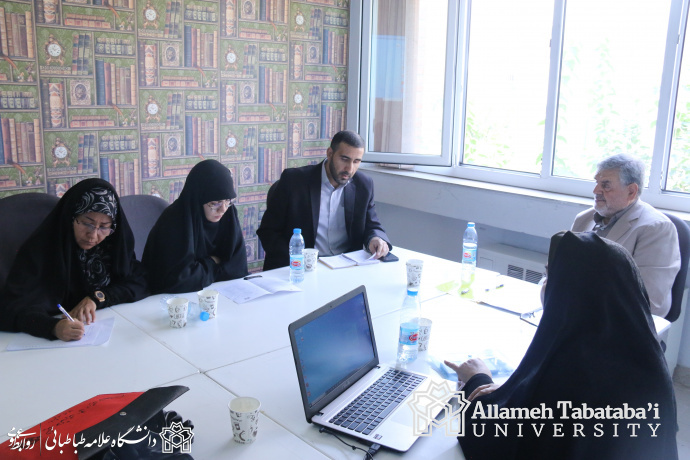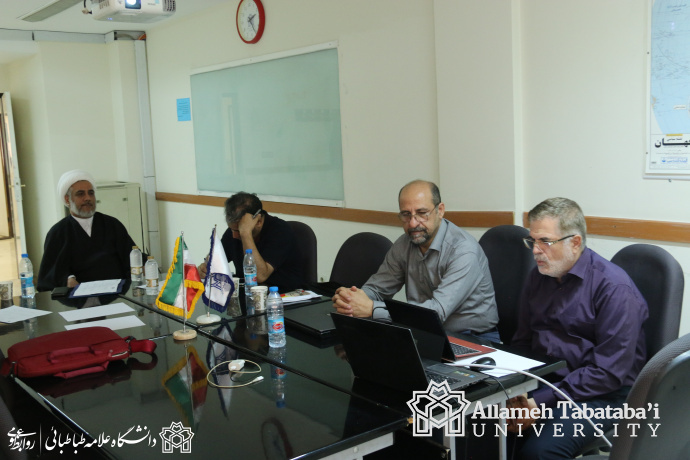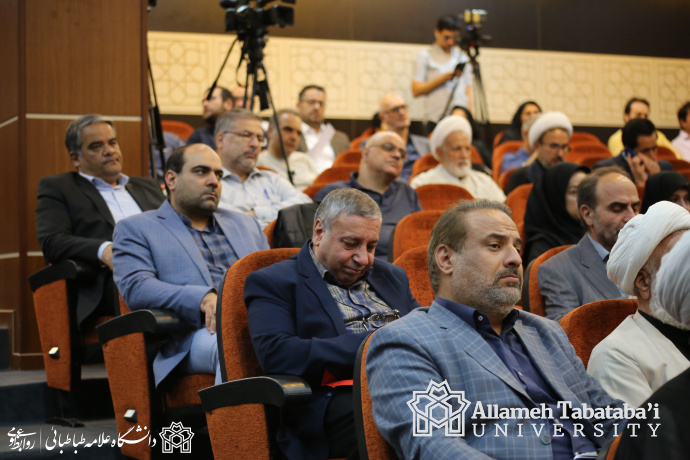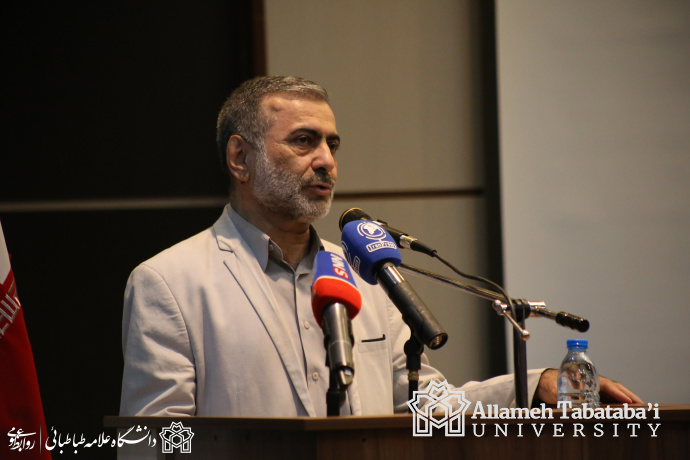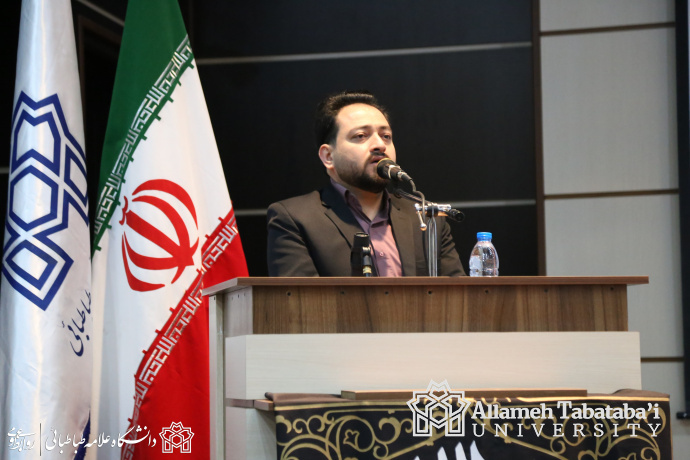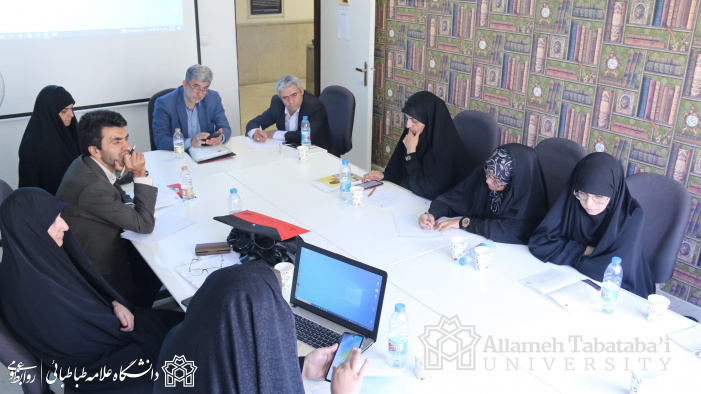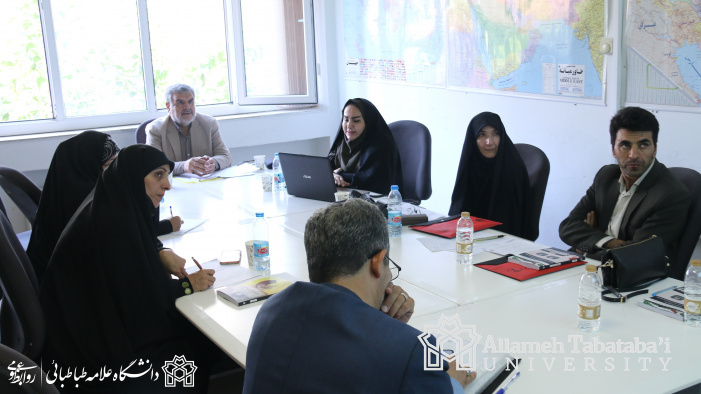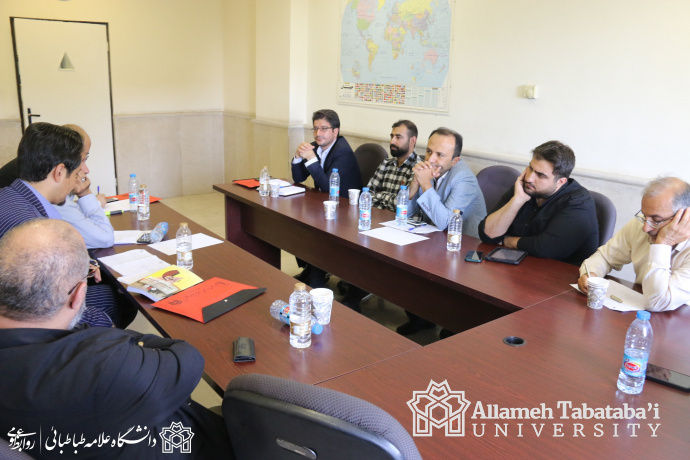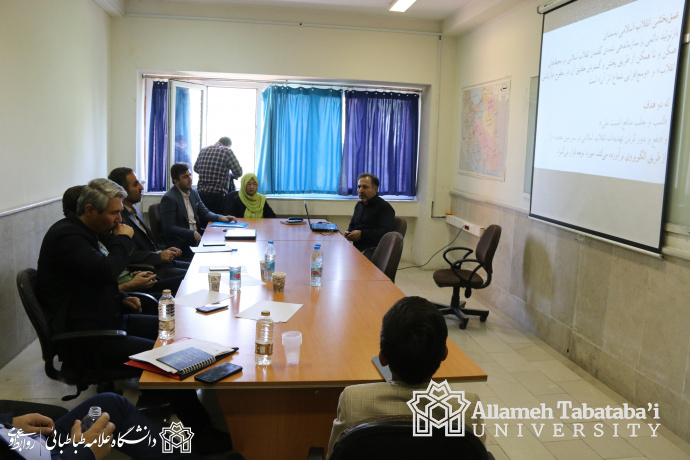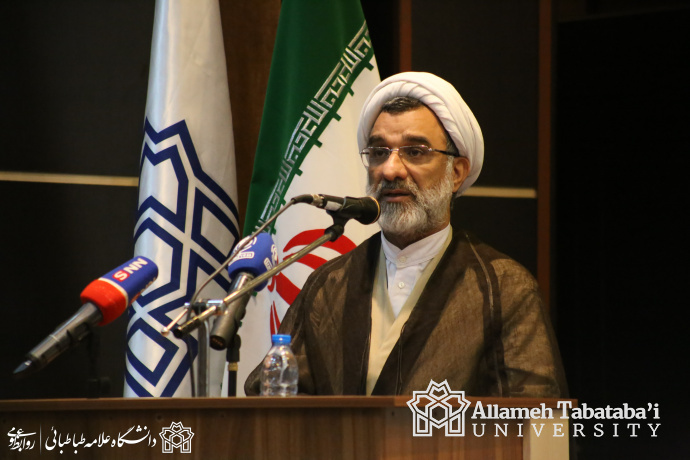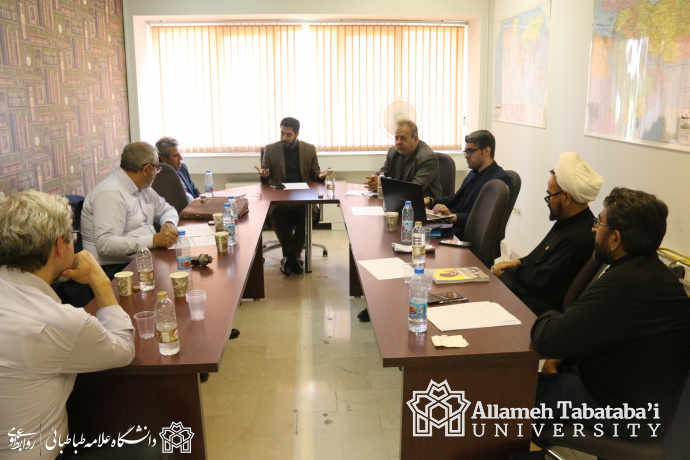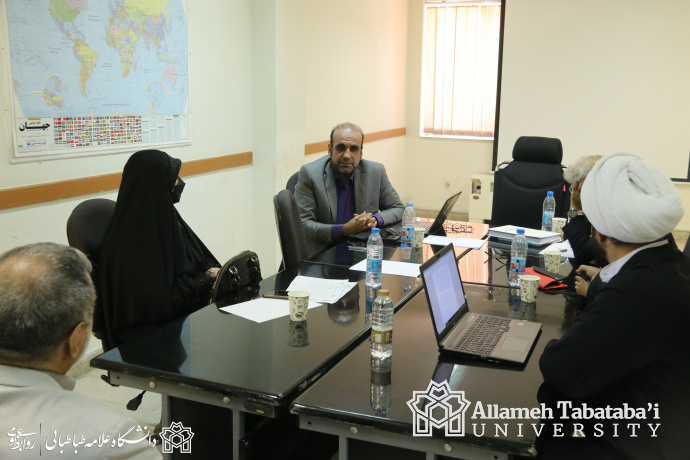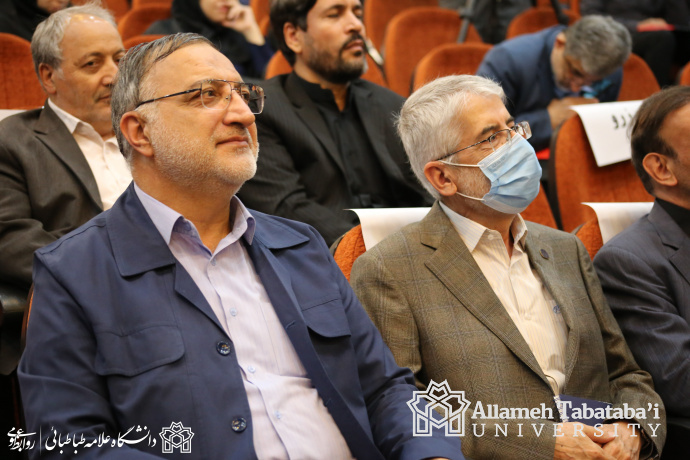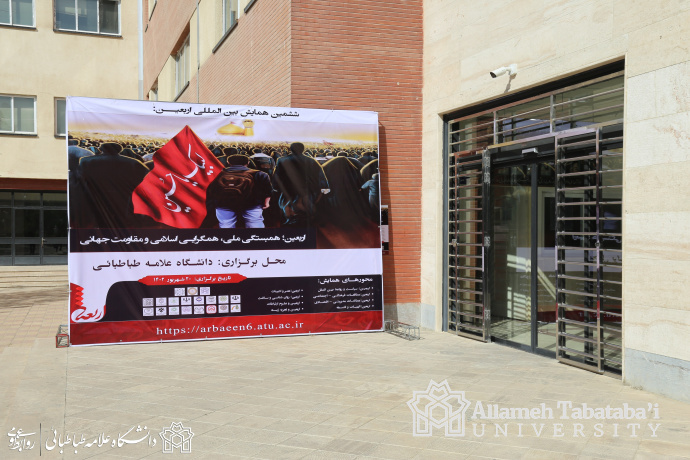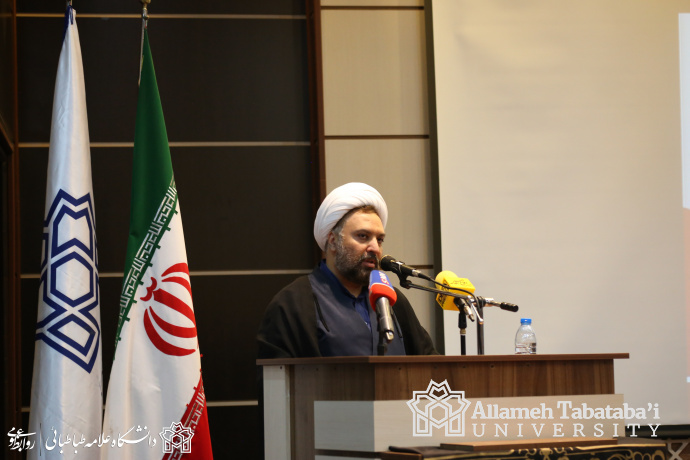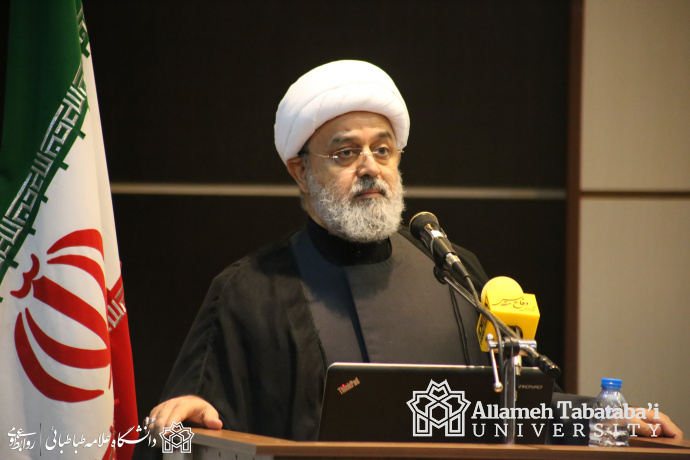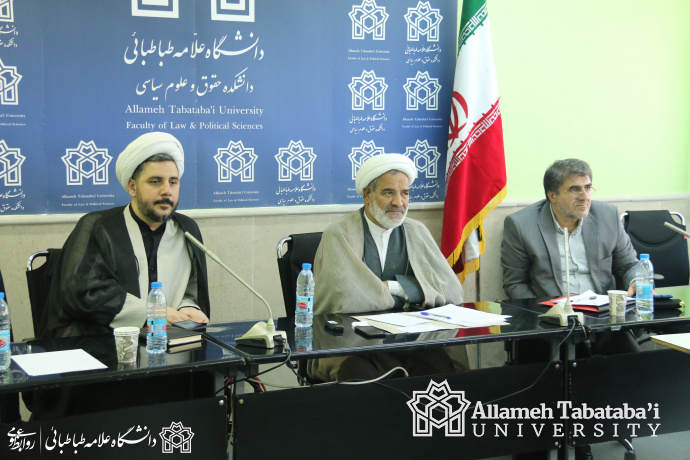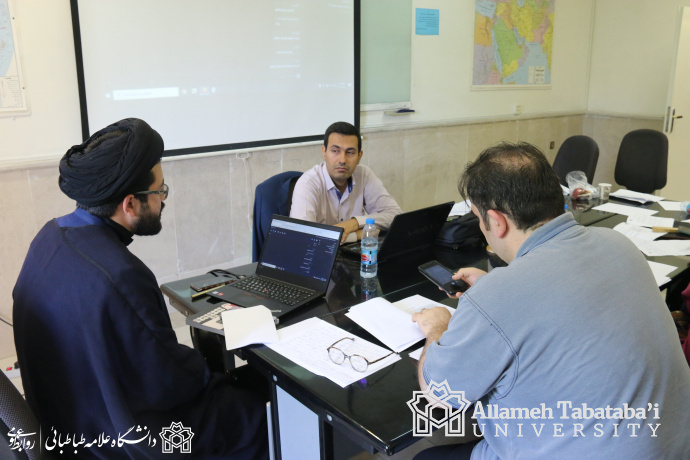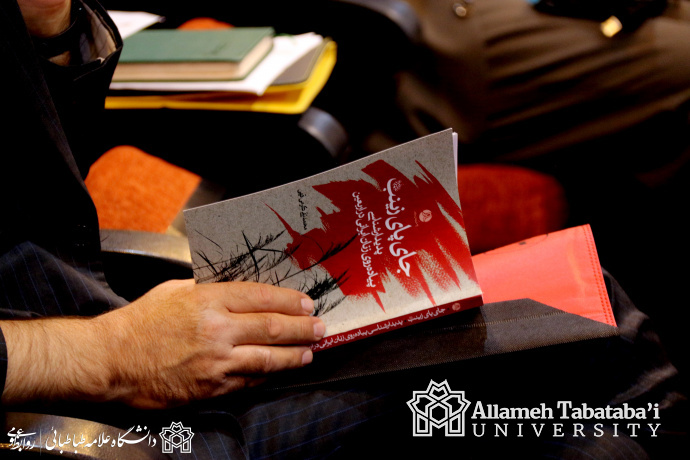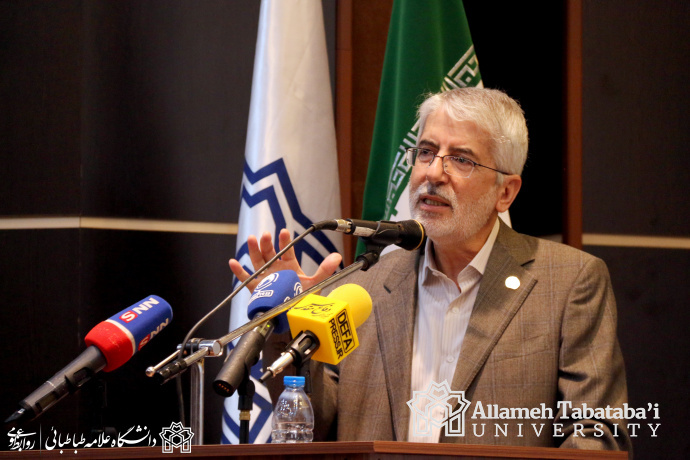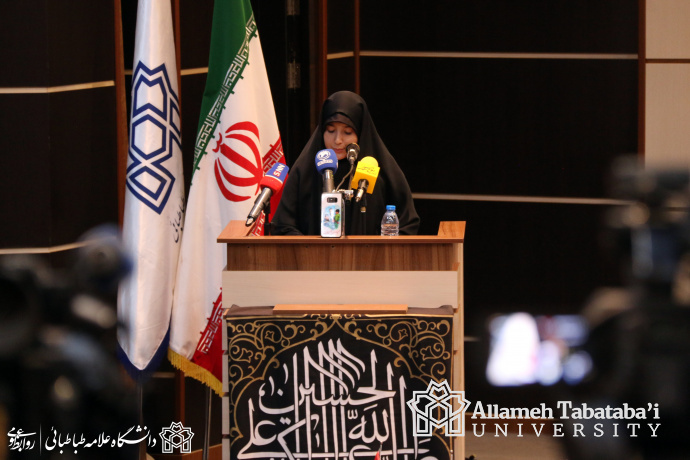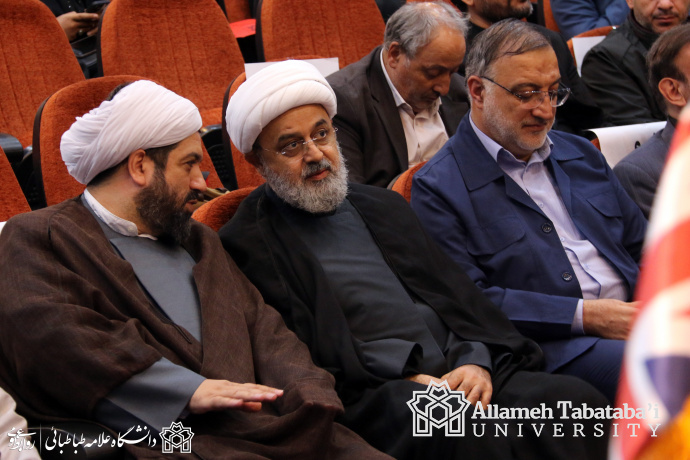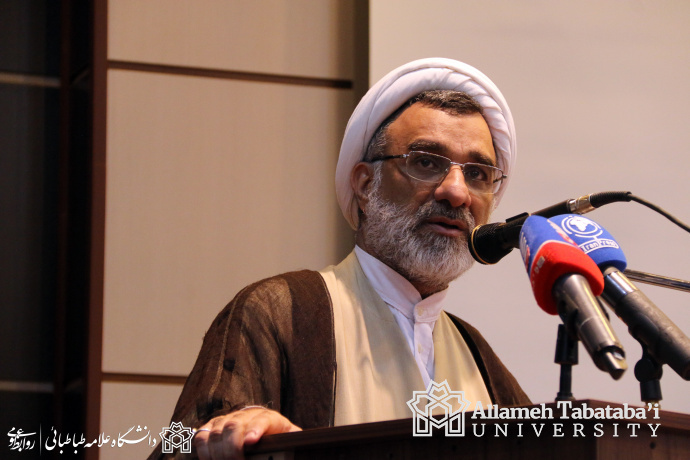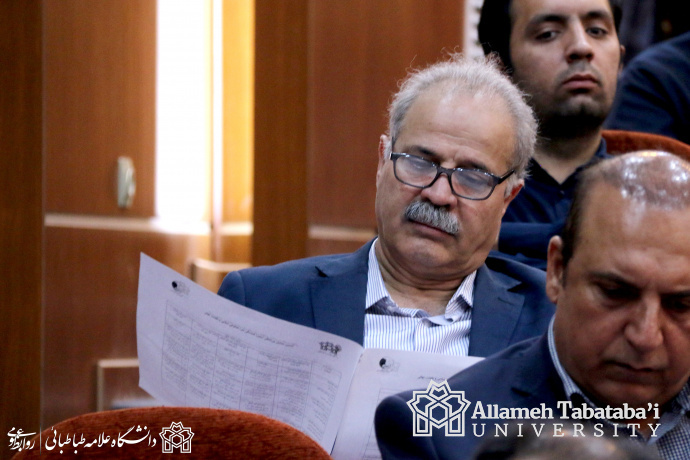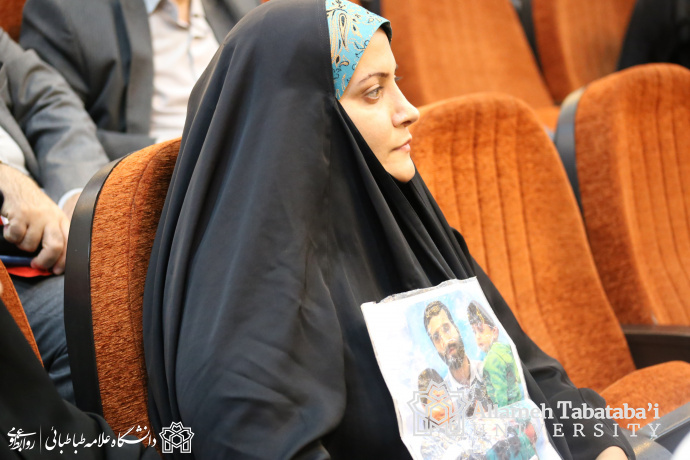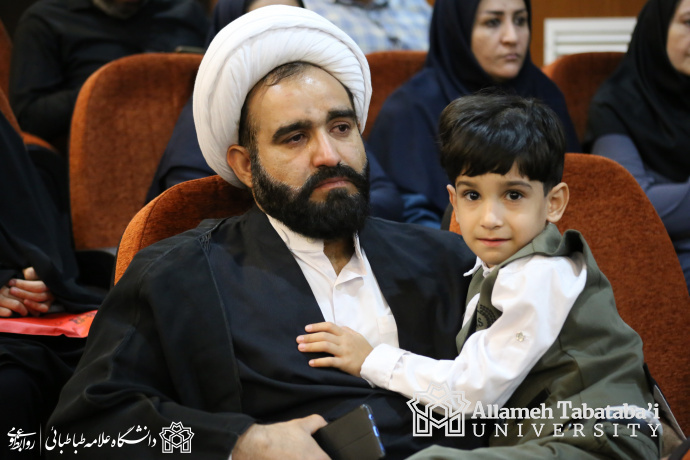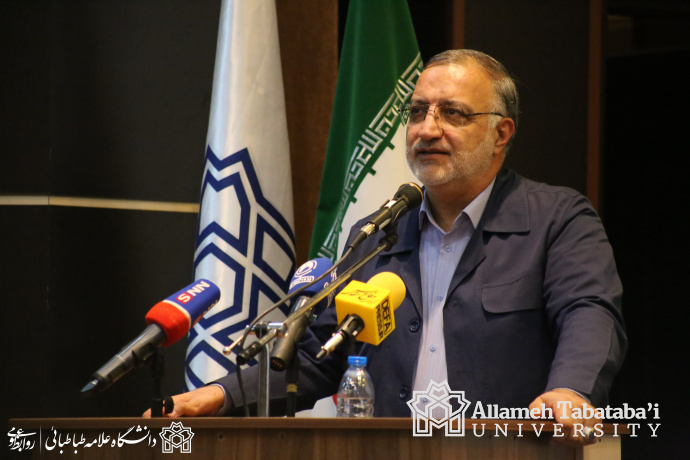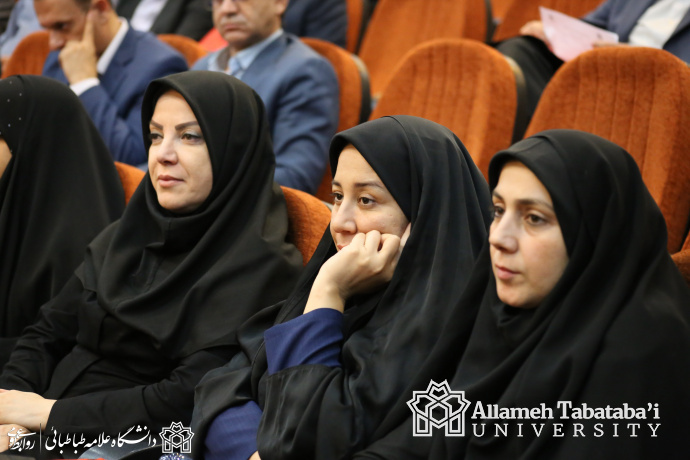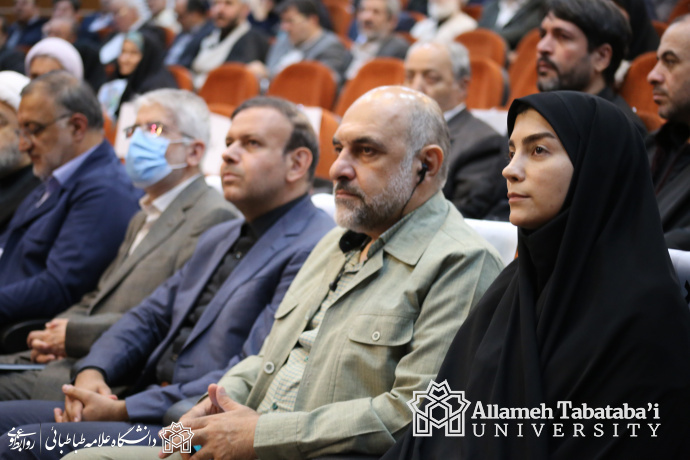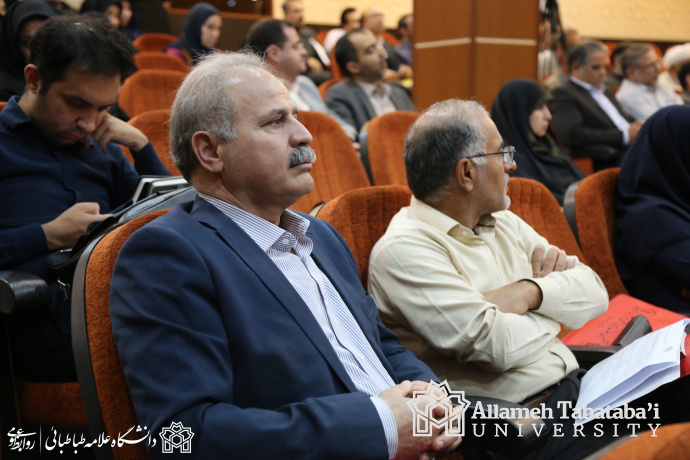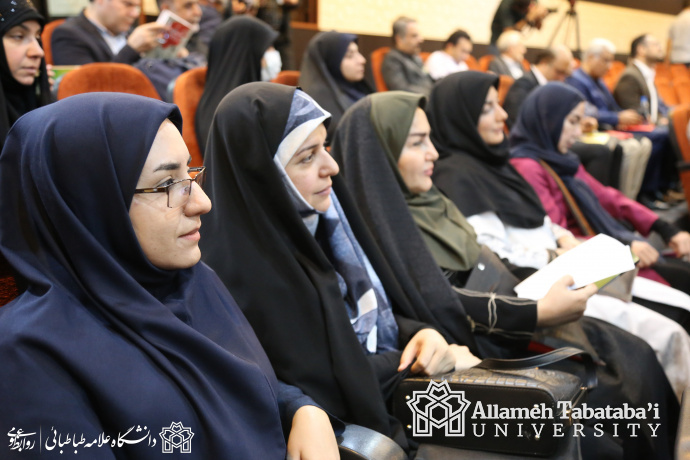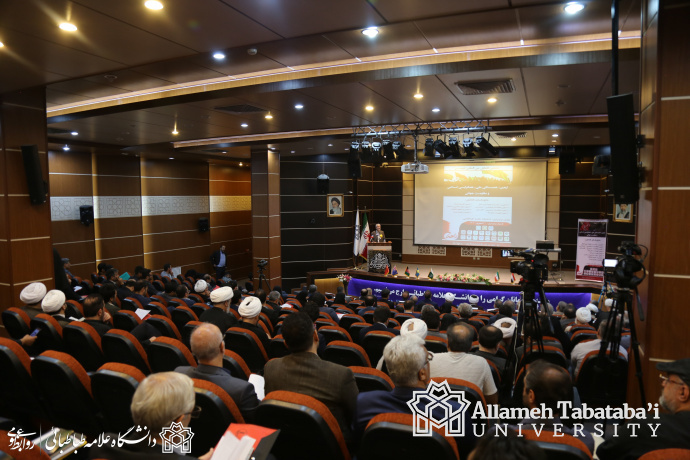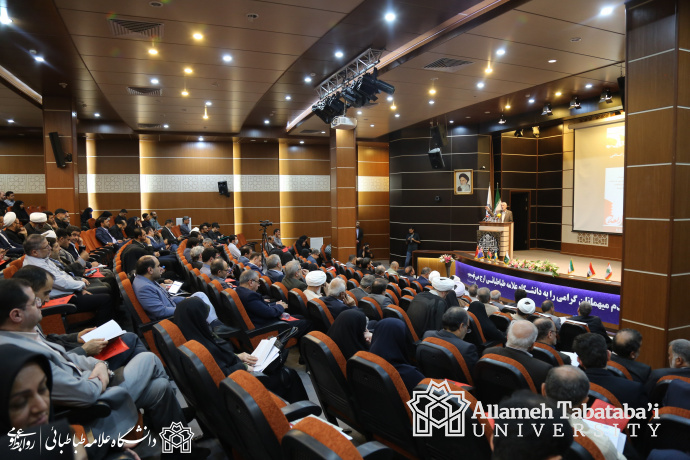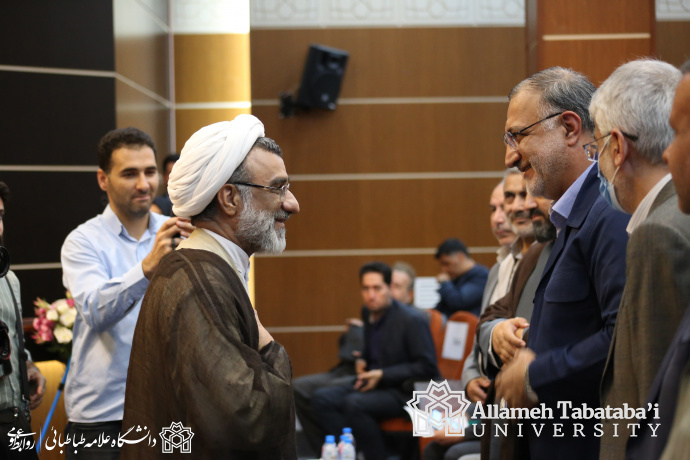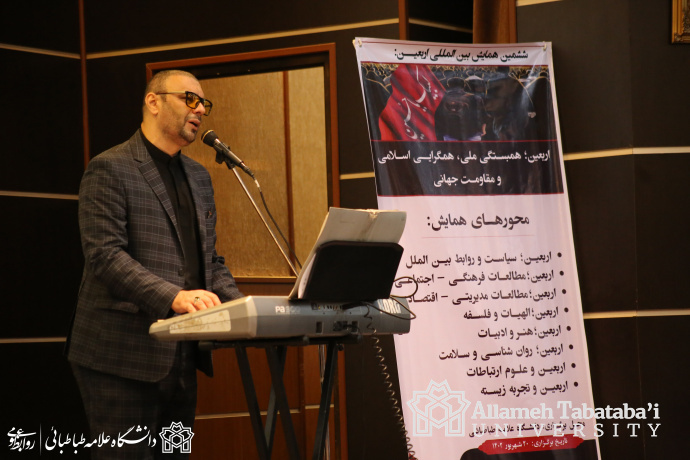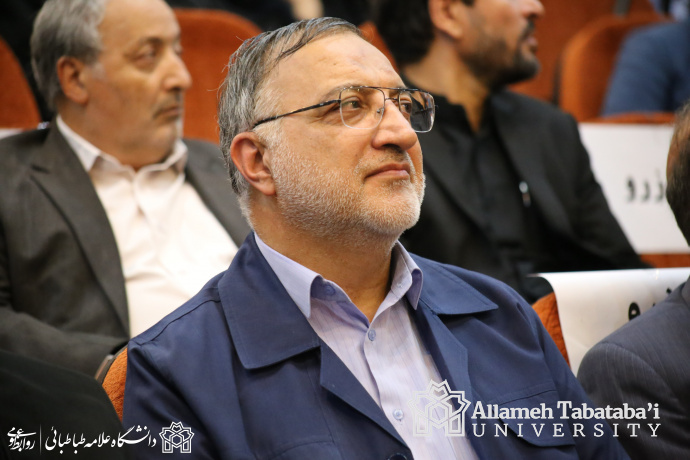ATU holds the Sixth International Arbaeen Conference
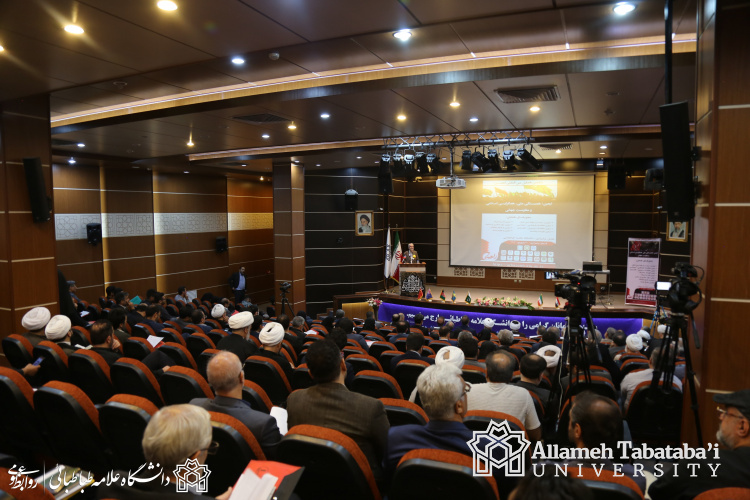
Report by the Directorate for International Academic Cooperation–
The sixth International Arbaeen Conference entitled "Arbaeen: National Solidarity, Islamic Convergence, and Global Resistance" was organized by the Faculty of Law and Political Sciences on Monday, 11 September 2023. Dr Abdollah Motamedi, President of Allameh Tabataba'i University; Hujjat al-Islam wal-Muslimeen Dr Abdolhossein Khosropanah, Secretary of the Supreme Council of Cultural Revolution; Dr Alireza Zakani, Mayor of Tehran; Hujjat al-Islam wal-Muslimeen Hamid Shahriari, Secretary-General of the World Assembly for the Approximation of Islamic Religions; Dr Reza Gholami, President of the Research Institute for Cultural, Social and Civilizational Studies, and a group of Iranian and international experts and researchers were the major participants and speakers of the conference.
The event took place at the Conference Hall of the Faculty of Management and Accounting, Allameh Tabataba'i University (ATU).
At the start of the conference, Dr Mohammad Bagher Khorramshad, the Scientific Secretary, expressed gratitude to the organisers of the past five conferences and provided a brief report on the arrangements made in the sixth international Arbaeen conference. Dr Khorramshad stated, "In July, we published the conference call, receiving approximately one hundred and twenty abstracts for consideration by the conference secretariat. Among them, about 25 articles were in Arabic and English, out of which 18 were accepted. Consequently, a total of around eighty articles are going to be presented concurrently in various panels today."
He then pointed to the readiness declared by the Academic Centre for Education, Culture and Research (ACECR, known as Jahad Daneshgahi), Imam Hossein Comprehensive University, and Supreme National Defence University to cooperate and hold conference panels and added: "To organize the conference, the Conference Policy Council conducted 21 meetings and received cooperation from 18 academic and research institutions in the field. Additionally, we sent letters to Iranian embassies abroad, and necessary acknowledgements was also published through the media."
In the next section of the event, Hujjat al-Islam wal-Muslimeen Hamid Shahriari praised the title of the conference, namely "Arbaeen: National Solidarity, Islamic Convergence, and Global Resistance", as a correct and accurate choice, and emphasized the significance of the concepts in the title. He then continued: "There are threats that may undermine the holy Arbaeen procession, and there are plans from the enemies' side in this direction. If we want to show our national solidarity in Arbaeen, we see that the optimal space is the Arbaeen procession as in this event, innumerable ethnic groups and religions come together, which is not possible in other occasions."
He then stated, "The enemies of Islam are currently focused on instigating divisions among the Iranian population, such as the divisions between the Sistani and Baloch communities. The same divisions resulted in the tragic loss of lives at Zahedan Mosque. It is crucial for us to be aware of these threats and seek solutions during Arbaeen to foster unity among different ethnic groups. Furthermore, we must be wary of foreign entities attempting to sow discord. At times, they endeavor to heighten tensions between the people of Iran and Iraq ahead of Arbaeen, exploiting conflicts and minor confrontations. Instead, we should utilize Arbaeen as an opportunity to ease tensions with our neighbouring countries, including Azerbaijan, Afghanistan, Iraq, and Pakistan, among others."
Shahriari emphasized the importance of adhering to the policy of cooperation with neighboring countries such as the Kurdistan Region, the Republic of Azerbaijan, Pakistan, and Afghanistan and urged that any differences between Iran and these countries should not escalate into long-term tensions. He also stressed the need for using logical approaches to transform political conflicts into positive competition, where competition can lead to progress. Moreover, he highlighted the significance of having a guiding framework in this regard, which is the system of legal guardianship established by Imam Khomeini (PBUH) and upheld by the Supreme Leader of the Revolution.
Secretary-General of the World Assembly for the Approximation of Islamic Religions then highlighted the issue of dual lifestyles, stating that the emergence of liberal culture needs to be addressed. While promoting and supporting legitimate freedoms, it is important to provide permissible and legitimate conditions for young people, in order to counter liberalism. In terms of Islamic convergence, the Secretary-General emphasized their responsibility for this important concept within the country and said they are engaging with Sunni individuals both domestically and internationally, considering that over seventy-five percent of Muslims are Sunnis. It is crucial to not only seek national solidarity but also foster convergence with other Islamic nations where Sunnis are predominant.
In the continuation of the International Arbaeen Conference, Dr Gholami highlighted various factors that have fueled the expansion of the Arbaeen procession. He said: "These factors encompass an increased thirst for spirituality and weariness from worldly life, as well as the unique spiritual gratification derived from this pilgrimage. Moreover, there is a growing affection for the Ahl al-Bayt (PBUT), particularly Imam Hussain (PBUH), and a longing to break free from the hollow and aimless lifestyle prevalent in modern society. Additionally, there is a burgeoning interest in moving away from individualism and embracing cooperation and collective action, an inclination to assert Islamic identity, promote justice within the Islamic Ummah, and exhibit resilience against oppressive forces. It is important to note that the dissemination of anti-Shia sentiments by Saddam and ISIS in recent years has also contributed to the surge in popularity of the Arbaeen procession."
He stated that the expansion of the Arbaeen procession contains messages that scholars may find interesting. Firstly, the popularity of Arbaeen remains strong among the people and has even increased. Secondly, Islam and Shiism are integral to the Iranian nation-state, and disregarding them will result in failure. Thus, it is important to utilize the cultural potentials of this procession in a wise manner.
Director of the Research Centre for Cultural, Social and Civilizational Studies then added: "In the case of Arbaeen, it is necessary to conduct extensive field research in various dimensions with the help of the Ministry of Culture and Islamic Guidance and other supporting institutions, while taking advantage of the scientific and research potentials of foreign researchers."
Highlighting the need to engage different groups in these studies, he asserted: "The studies should engage two groups of people: The first group should consist of individuals who have personally experienced the Arbaeen procession, with the second one including individuals who have not participated in the procession but can provide criticism from an external perspective, since they will provide valuable insights. However, initiating the field work at the present momemt might even be late, as almost eight years have passed since the movement began on such a large scale."
(Translated into English by Rasoul Firouzi; Click to see the source)



